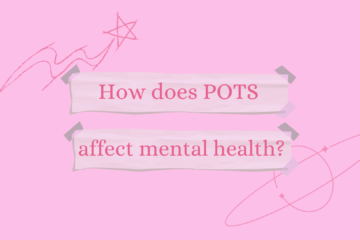One of the biggest obstacles for people with POTS is actually getting an official diagnosis. I was nineteen when I got my diagnosis even though I have dealt with symptoms my entire life. It took me at least ten different doctors and specialists and around three years after the day I consider the start of my journey to finally get my diagnosis, but it takes some people much longer.
Dysautonomia International did a study in 2013 providing insight into how long it takes for potsies to get diagnosed and what their journey was like. They surveyed over seven hundred POTS patients and found out some interesting information. On average it takes over five years to get an official POTS diagnosis, with only a fourth of patients receiving their diagnosis within the first year. Fifty percent of people had to travel over one hundred miles to receive medical care for POTS, including me. My first POTS doctor was over one hundred fifty miles from my hometown and my second POTS doctor was two hundred thirty miles. My neurologists and general doctors didn’t recommend a single POTS doctor in the state of Georgia for me to go to. Dysautonomia International also concluded that twenty seven percent of patients saw over ten different doctors before getting their diagnosis, with many of the previous doctors saying that “it’s all in your head” or “it just an anxiety disorder.” Research has proved that POTS patients are no more likely than healthy people to experience anxiety, POTS symptoms just mimic anxiety symptoms at times. Conclusions like this only add to the imposter syndrome that many people with invisible illnesses experience everyday.
It is also not lost on my that people assigned male at birth have an even harder time trying to get diagnosed. My brother has experienced the same symptoms as me and started to question it years before me. When he brought it up to doctors, they said that he could potentially have POTS, but since POTS affects significantly more females than males, they didn’t even want to try to get him a diagnosis. They told him that it was just “salt dumping” and the advice they gave him was to eat more salt and hydrate. It was until recently, after I had gone through my whole diagnostic journey, that they finally took his symptoms seriously enough to get diagnosed.
The massive delay in diagnoses is in part caused by doctors and the general population not being aware of what POTS is. SO many people get misdiagnosed for this reason. Since the coronavirus triggered POTS in many people and/or made their symptoms worse, awareness has been increasing, but it can always get better. My family was completely unaware of POTS until my brother and I started our journeys, but if we were aware of it at a younger age, we could have received the assistance that we so desperately needed when we were younger. Many people, including my family, didn’t even know that the symptoms we were experiencing were that abnormal, causing us to go on a wild goose chase through too many doctors to finally get some answers. I remember laying on the bathroom floor after every hot shower and asking my family members if it was normal and they thought that it was because the education around POTS is just not there. I have had to explain my illness to many doctors because they were unfamiliar with it when that shouldn’t happen.
Spreading awareness about POTS and other types of dysautonomia, especially during dysautonomia awareness month, can lead to a shorter delay in getting diagnosed. Even if you yourself don’t have POTS, please spread information about it to as many people as you can. Just by telling my story, I have helped so many people look into getting a diagnosis and know what exactly to ask for to start that process. My hope is that one day, significantly less people have to go through years of misdiagnoses and can actually get the help they need at the onset of symptoms.
If you missed me talking about my full journey with POTS be sure to check it out and subscribe to my emails to stay up to date with all things Power in POTS < 3



0 Comments